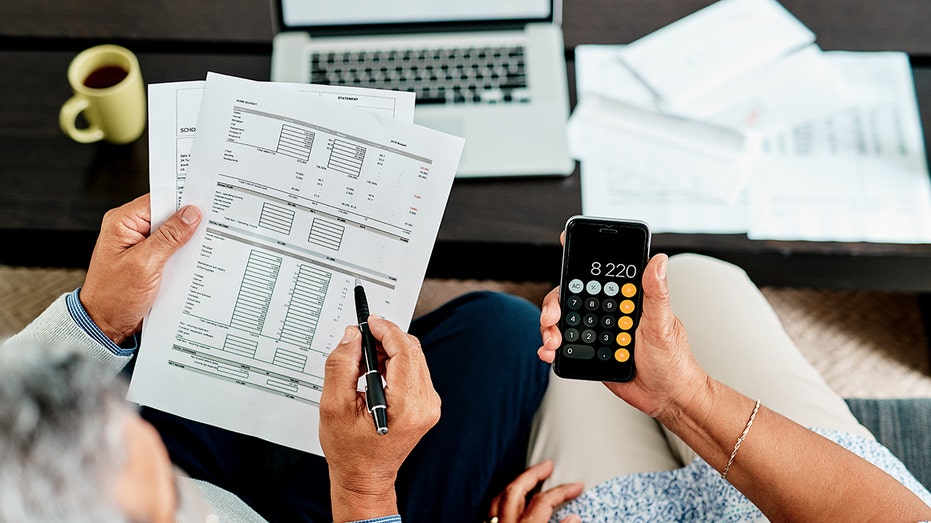3 money moves to make once you return to work
As life returns to normal slowly, you should have the same attitude with your finances
Get all the latest news on coronavirus and more delivered daily to your inbox. Sign up here.
The economy is beginning to open back up in some states, but it may be a while yet before people feel secure about their finances again. Even with stimulus checks and expanded unemployment, it's been tough for many Americans to stay on top of everything.
We'd all like to think that will go away as soon as people get back to work, but that probably won't be the case for everyone. Couple that with the risk of a potential second wave of COVID-19, which could threaten our health and economy again, and the need for continued careful money management is obvious. Here are a few things you should do once you return to work to ensure you're prepared for whatever comes next.
IS FINANCIAL INDEPENDENCE POSSIBLE DURING CORONAVIRUS?
1. Replenish your emergency fund
Many people with emergency funds likely used at least some of this money to help them through these last few difficult months. This is exactly the sort of thing emergency funds were intended for, so that makes sense. But it's not the only emergency that could arise. The threat of job loss is still very real as some companies struggle to remain profitable amid the pandemic. Then there are other emergencies such as health issues, appliance breakdowns, and insurance claims that could all lead to costly bills.
Budget a portion of your income toward rebuilding your emergency fund once you're back to work. Set aside as much as you can spare to help you rebuild your fund more quickly. You may want to plan on a larger emergency fund than you were accustomed to having, just in case there's a resurgence in COVID-19 cases and the stay-at-home orders return.
HOW TO FIND THE BEST PERSONAL LOANS
2. Create a debt repayment strategy if you took on debt
If you took out any loans during COVID-19, whether from a 401(k) or a bank, you'll have to prepare for regular monthly payments to pay this back. Those who enrolled in hardship assistance programs may also have to readjust their budgets. These programs enable you to defer payments or make partial payments for a few months, but your balance continues to accrue interest in most cases, so you'll owe more money overall. That could mean a few additional months of payments beyond what you'd planned.
Credit card debt can be even harder to deal with. Credit cards have high interest rates, and it can be challenging to get rid of this debt, especially if you're still charging new purchases to the card. You can try taking out a personal loan if you want to convert your credit card debt into an installment loan with a regular payment, or you could transfer your balance to a card with a 0% introductory APR. This temporarily halts the growth of your balance, so it's easier to pay back what you owe.
WAITING FOR CORONAVIRUS STIMULUS CHECK? DIRECT DEPOSIT INFORMATION IS DUE BY NOON, IRS SAYS
3. Redo your budget
Between replenishing your emergency fund and paying off any debt you've accumulated, you probably need a new budget to get you through the next few months -- until all of that has settled. This is especially true if you're returning to a different job than the one you left behind. That will change your income, which will in turn affect how much you can afford to spend and how much you can save for your long-term goals.
It's still a good idea to limit your discretionary spending and try to keep your essential costs down, at least for a few months. This will help you achieve your other goals more quickly.

High angle shot of a couple calculating their finances together at home
Make a list of all of your new expenses, including ones you may not have had before the pandemic, and subtract them from your monthly income. Then, decide how much you can afford to put toward each of your savings goals. If you're still taking advantage of COVID-19 hardship assistance programs, note when you're required to resume normal payments and factor this into your budget as well.
HOW TO APPLY FOR A CREDIT CARD AND GET APPROVED
Life is going to return to normal slowly, and you should have the same attitude with your finances. Take things slow. Focus on rebuilding your safety net and establishing a new budget. Then, as you feel more secure, you can begin adding other things back in.
10 stocks that could be the biggest winners of the stock market crash
When investing geniuses David and Tom Gardner have an investing tip, it can pay to listen. After all, the newsletter they have run for over a decade, Motley Fool Stock Advisor, has quadrupled the market.*
David and Tom just revealed what they believe are the ten best buys for investors right now… And while timing isn't everything, the history of Tom and David's stock picks shows that it pays to get in early on their best ideas.




















